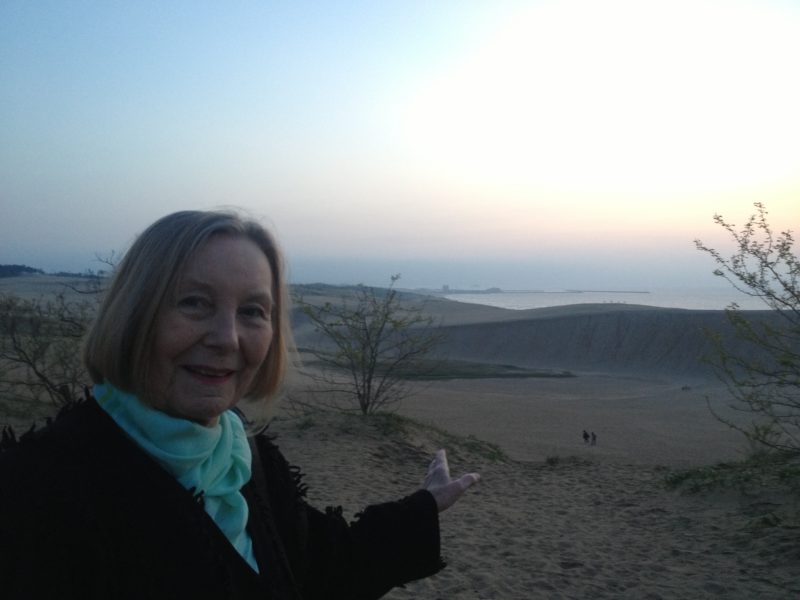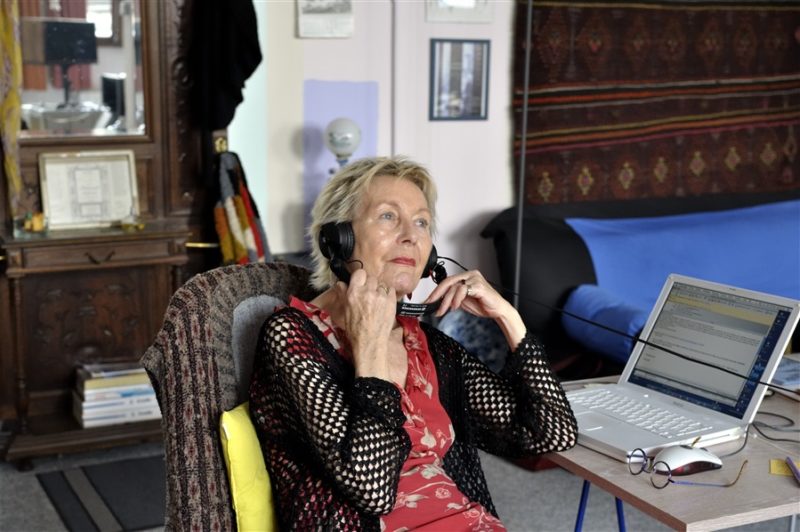Brunhild Meyer-Ferrari

BA
Dear Brunhild, let me start with a question which most musicians do not like at all. How would you describe your own music?
BMF
I’d say that sometimes rather than music I make audible paintings based on observations of my ears, my senses; observation of moments, of encounters in our life.
BA
Could you tell us what you will perform on the Kraak festival, and what it means for you to be playing live?
BMF
The first piece will be Stürmische Ruhe (Stormy peace, 2011-2014, 29’05), by Christoph Heemann and myself. I’d play a piece that may be a little bit a test, an uncomfortable demand to the listener because of some violence, observed and rendered without concession. This moment of life is browsed however and contradicted by Christoph Heemann’s Soothing harmony.
Playing this piece for an audience is a little like an act of defiance in which we both, the audience and me cross together this stormy afternoon.
Starting recording in a single enclosed area, sheltered from the wind and rain, and inviting Christoph Heemann to visit these sounds, we wanted there completely opposite sound worlds to get joint. The result is an union between almost-violence and some softening harmony.
The second will be Tranquilles Impatiences (Quiet Impatience, 20’25), which I composed because I could not resist working on Luc Ferrari’s sounds he called Exercises d’Improvisation. I wanted to disturb these quiet woven sounds by my contradictions creating a certain impatience that I’d like to share. Exercises d’Improvisation consists of 7 separate tapes that, according to Luc Ferrari :
“... may be for individual or collective improvisation for any instrument or instrumental group...”
Listening to these separate materials I felt the irresistible desire to compose a new piece using ad libitum five of these seven tapes.
Impatience represents for me the high rhythmic sounds, these imperturbable wriggling interfering in the false quiet low rhythms, because each being of different and contradictory speed that I wanted disturbing to the point of waver during fractions of seconds the physical balance.
BA
Are you a person who is listening a lot to music at home? If so, I would be curious to know what is on your stereo.
BMF
I love listen to music and I love to discover music. But most of all, I love to be surprised without feeling in advance the development of music.
BA
Could you tell me one thing you have learned from Luc Ferrari, and one thing he has learned from you (with regards to creating music)?
BMF
Regarding music, Luc was my precious teacher for listening, for recording and of course in the 60s, for handling the tape recorder and scissors.
BA
Have you followed digital revolutions in recording and manipulating sound, or rather not?
BMF
I work with digital equipments but use them in a limited way, just for what I cannot find by a natural way.

BA
Would you agree that musique concrète, tape music, field recordings... all came into being, because people in the field of avant-garde and composition had become very aware that sound had to come first, rather than pitch? And to take this further; even though musique concrète would work with the new technologies of the time, would you agree that the choice of sound over pitch brought musicians closer to the sources of music and to the (perhaps very primitive) sources of man’s musical experience?
BMF
I’d agree that field recordings... helped advancing in ear training – which is not so very far from classical instruments. But this is not yet music.
The technology in musique concrète, tape music, is just one instrument (equipment) more, used in composition, an opening of minds.
In my opinion, the technology used as sound technology is not composition but one may use pitch technology in music. I would not reject any means of technology if one can compose music with them.
If I did understand well your question ?
BA
Do you feel a connection to other female composers, or rather to composers working with analogue media and so-called ‘everyday’ sound?
BMF
If you say female composer, yes: Eliane Radigue is one of my favorite composers. SHE knows how to deal with all instruments and means of technology and for me she is the very rare one expressing a female sensitivity. On the other hand I don’t search for a distinction between female and male works.
BA
A lot of musicians and sound people have a link to cinema, or at least, a lot of them would like to work for the movies. Could you tell me one or two film titles where you think: I would have liked to provide the soundtrack here?
BMF
No not me. But I understand very well composers who wish to interprete or to accompagny a movie in their perception.
BA
Do you think the term ‘noise music’, when applied to certain sounds created with tape loops and field recordings, is an insult, or rather a pretty good caption?
BMF
I would not generalize. Some ‘noise music’ can be of very good quality, depending on the sensitivity of the artist, on his intention, on his meaning. But in this case, I would not really call it ‘noise’ music.